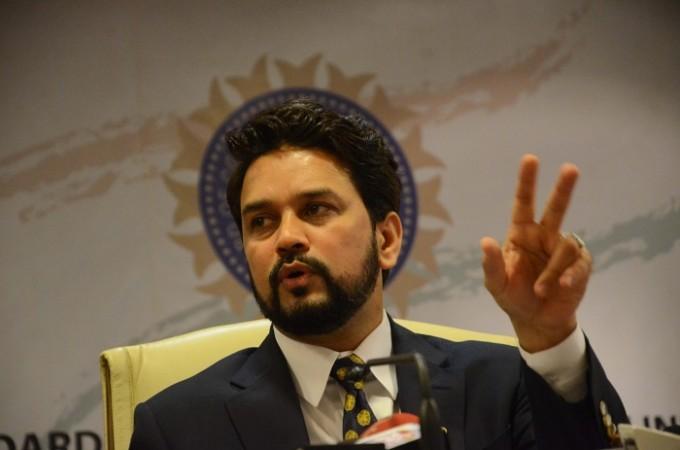
The Board of Control for Cricket in India (BCCI) has been against the Decision Review System (DRS) for quite some time, citing it not being 100 percent foolproof. But that could all change and India could be seen using the system if the board is satisfied with 'the 'outcome of latest trials and the feedback of the DRS technology''.
"I will be attending the Cape Town meeting in the second week of October. We'll again have to look into the performance of DRS. If that is satisfactory, BCCI is open to use the DRS. It all depends on the outcome of the latest trials and the feedback of the DRS technology," IANS quoted BCCI president Anurag Thakur as saying.
There have been instances when one has witnessed umpires giving some wrong decision on the field to be later corrected by the review process of DRS, reflecting on the positive side of the system. However, India is not too convinced about the system, though other nations agree with the DRS.
The BCCI is not fully convinced about the idea of DRS providing with 100 percent right decisions. Thakur also spoke about how the ICC, in its annual conference, failed to satisfy as to whether the DRS was 100 percent correct as well.
"If you remember in the Sri Lanka series I made an official statement i that BCCI (Board of Control for Cricket in India) is open about DRS. The issue is, is that technology 100 percent? Are you sure about the 100 percent decision making as far as DRS is concerned," Thakur said.
"There were shortcomings and that is why, in the ICC, we have told the cricket committee to look into the DRS and MIT (Massachusetts Institute of Technology) was supposed to give a report. Even in our Edinburgh meeting (the ICC annual conference in July) this year, they could not come to a conclusion where they are fully satisfied with the DRS technology."
The ICC introduced the DRS in 2009 when New Zealand played Pakistan, but India has not been a huge fan of it. The world cricket body went this route to reduce umpiring errors, and Thakur does not see much difference if the umpires and the DRS are making the same percentage of correct calls.
"Improvement is all right. Because if umpires are making 95-97 percent decisions as right decisions, and same you're getting with DRS then what is the change? So the only issue if not 100 percent then how better than field umpire that has to be seen," Thakur said.

















